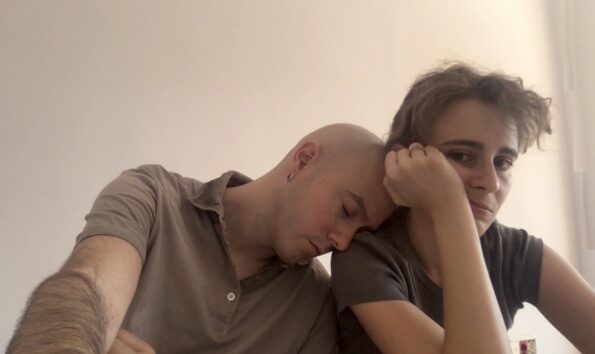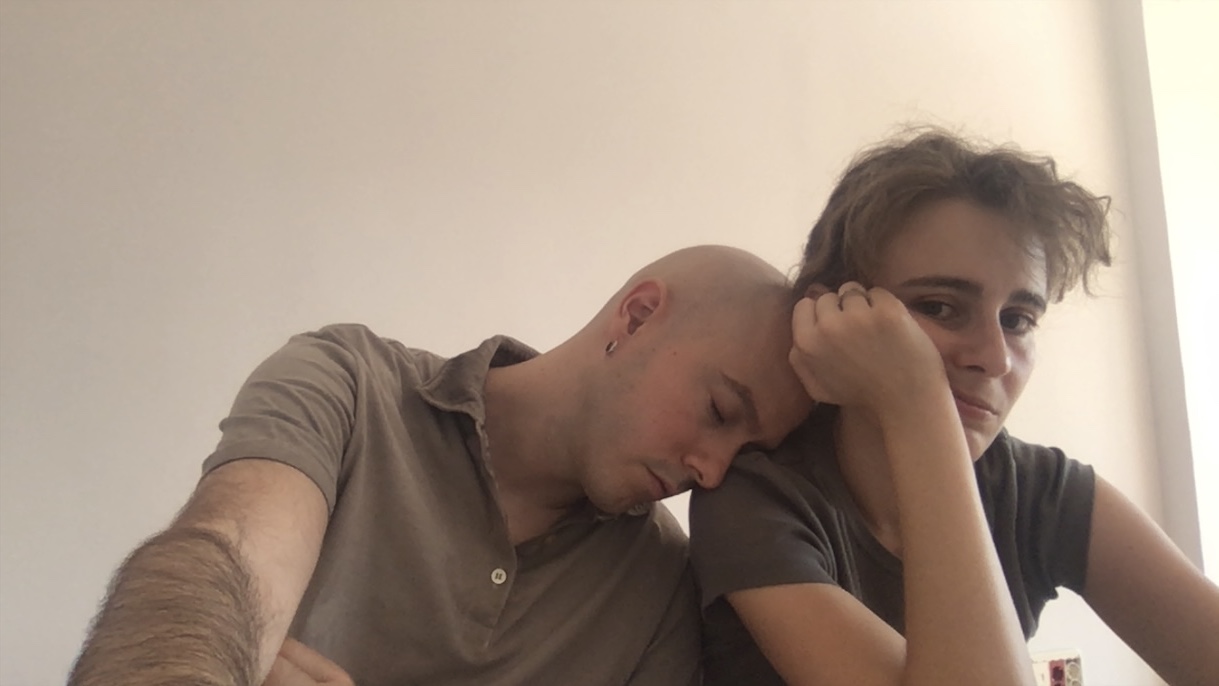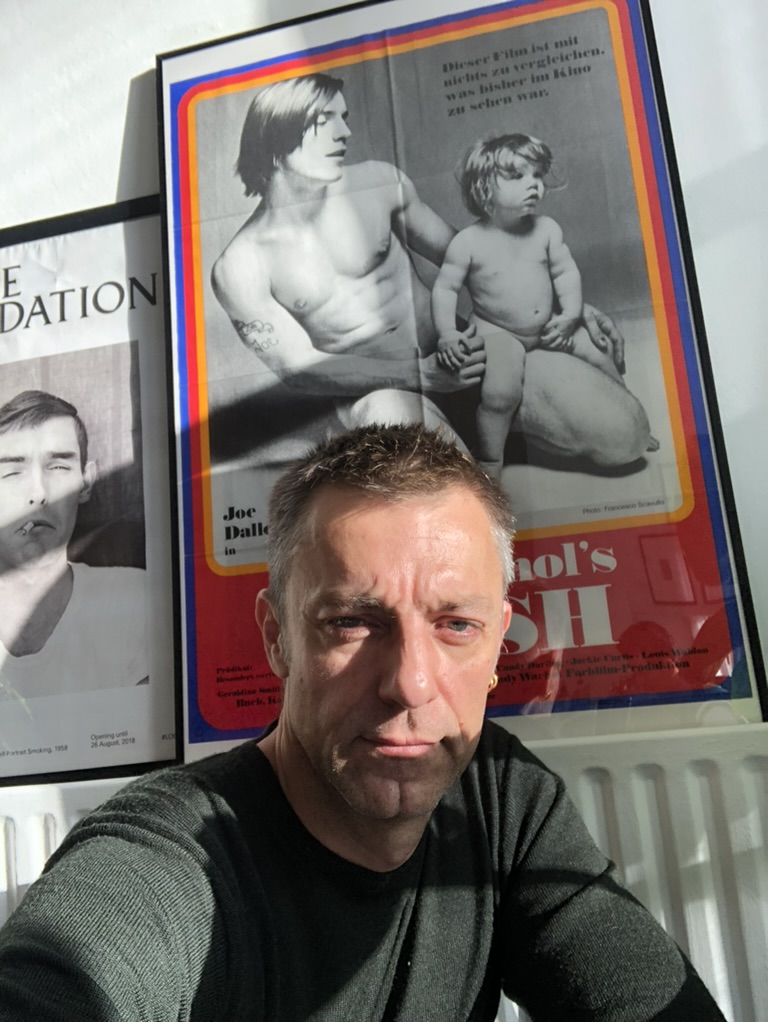Search
To search for an exact match, type the word or phrase you want in quotation marks.
A*DESK has been offering since 2002 contents about criticism and contemporary art. A*DESK has become consolidated thanks to all those who have believed in the project, all those who have followed us, debating, participating and collaborating. Many people have collaborated with A*DESK, and continue to do so. Their efforts, knowledge and belief in the project are what make it grow internationally. At A*DESK we have also generated work for over one hundred professionals in culture, from small collaborations with reviews and classes, to more prolonged and intense collaborations.
At A*DESK we believe in the need for free and universal access to culture and knowledge. We want to carry on being independent, remaining open to more ideas and opinions. If you believe in A*DESK, we need your backing to be able to continue. You can now participate in the project by supporting it. You can choose how much you want to contribute to the project.
You can decide how much you want to bring to the project.

Yaby are Beatriz Ortega Botas and Alberto Vallejo and this is the story of their curatorial project in their own words.
Bea: We had been talking about it since we lived in London. We found a series of artists exhibiting there and in Amsterdam who we wanted to see in Spain. We knew that there were spaces operating in Madrid and we thought that there was room to bring people from outside. And, quite honestly, we wanted to start curating.
Alberto: The vision we had back then was much more modest. We were interested in project spaces that we had seen outside of Spain and the idea was to bring that here.
Bea: We were always very clear that we would do it for as long as we needed in a space where we could do the things we wanted at that moment, and when that ended we would close the space. There are spaces in Madrid that have been doing incredible work for years but longevity was never our goal.
Alberto: We never functioned with the idea of a project space, that is, one that serves a moment in the artists’ career, offers a lot of freedom and tends to have individual exhibitions. From the beginning, we organized curated group exhibitions in which we intervened. For us, it was always about a space in which we could curate exhibitions.
Alberto: We didn’t have any experience. We had taken a Casa Encendida course, Curating the Present, and there we met people with whom we have continued working, but that was all.
Bea: I had organized a symposium in Holland, but in terms of management, administration, or hanging an exhibition, that was all a challenge to me. We had to learn as we went along.
Alberto: We were very lucky because we started with funding from Injuve, which does not give a lot of money but does not require previous experience and that allowed us to obtain and manage the financing in an easier way. That way we were able to learn in order to later be able to access other grants that allowed us to support ourselves.
Bea: With the funding, we went out to look for a space and found one that was quite ugly but worked well for us. It was the right size for what we wanted and could afford. It’s not like we arrived in Madrid without knowing anyone: we had friends, we invited local artists, although the idea was always to bring in people from outside of Spain. This also opened many doors within the city for us after being away for a while.
Alberto: People younger than us started coming. The first year was very much off the cuff. We were exploring things we wanted and aiming for what we really wanted and what we would do next.
Bea: We started thinking about annual programming. We developed a theme, a series of ideas that we wanted to work with all year, and we programmed based on that.
Alberto: The first year was more indefinite for us, but in the second year we began addressing themes that we had been exploring and which had a lot to do with queer issues or perspectives: time, death, violence. From that year on, we began to work with issues of identity. I think that defines Yaby a lot: identity and experience, something that really began in the second year.
Bea: We were learning while we were doing it. We were working with artists based on what they would tell us and how that would affect what we were reading and the ideas we had. That allowed us to be much more flexible. I think that, at the beginning, we were seen as promoting a very artistic, environmental thing, but over time we moved away from that. In recent years we have been more interested in seeking links with previous moments of art history, more traditional materializations. We have become less young and fresh but that is what corresponds to our age.
Bea: We have been asked many times what our relationship was with the local context. We have always worked with Spanish artists but that isn’t our main thrust. We have always thought that our way of contributing to the context is to influence it by showing things that aren’t so available here.
Alberto: As a political act, the local context that interests us is a queer context, which we felt was not sufficiently nourished in Spain. The type of art that was seen in exhibitions might be interesting for a community of young artists, in abstract and generic terms, but for a queer, racialized community, it didn’t have the most interesting references and didn’t represent all of them, especially the kind of art that deals with issues of race, gender, and desire but from other coordinates, that is, from minimalism, conceptualism or abstraction. These ideas have been developing in these recent years of darkness, of resistance to representation. We wanted to highlight these discourses so that young people who came to our space could see other possibilities. We have always tried to work with local artists who deal with these subjects.
Bea: In the last couple of years we have made a significant effort to politicize our proposal.
Bea: Our financing has always been fundamentally public. First Injuve government grants and then grants from Madrid. Embassies have sometimes helped us with specific events but the majority has always been public funding, although later it became impossible to make a living from it. It just wasn’t enough, conditions got worse, but we never meant it to be a very long project. Also, the timetables between the application, the granting and the arrival of the funds were impossible, unbearable. This made us more aware that what we wanted to do was something else, because we didn’t have time to think. We had to notify the artists, organize shows, deal with transportation, etc., and in our last year these types of things really drained us.
Alberto: The mechanism of grants pushed us to become a more traditional project space: the grant arrives, you call the artists, you distribute dates and schedule a whole year. But we didn’t want to do that, we wanted to organize exhibitions. We realized that, within this system, we lacked work capacity. We needed more time to do what we had in mind but the grants were designed for other types of dynamics. That’s why we decided to end it for good.
Bea: The magazine was an extension of the project. When we realized that we were not dedicating as much time to the critical discourse behind the exhibitions, we thought about inviting a series of writers, theorists, poets and artists to speak as a way of dedicating a year to a specific topic. We did it annually and it revolved around subjects present in the space’s programming. The magazine worked very well, especially internationally.
Alberto: A lot of interesting people participated but it was a lot of work. I didn’t see myself as an editor. We did only three issues (the first issue was basically a fanzine), but it served to get conversations going.
Bea: Yaby is a curatorial project. For a time it took the form of a physical space in Madrid. That formula served us for a period, with details and variations, but then led to an extension as an editorial project. Now it is an independent curatorial project without a physical space.
Alberto: To be realistic, this is what we always really wanted to be, although we have done other things, as well. I think that the first years, perhaps regrettably, we were an independent-young-fun project. Of the five years of Yaby, the first two were different but from the third onwards we began to manage it better and, in my opinion, what I always wanted Yaby to be was what we did in the last year of the space’s existence. The pandemic gave us time to think, research and work. For example, the guided tours by appointment due to Covid were very important for us. That’s when we had the most interesting conversations and when we formed a community.
Alberto: The grant model pushed us to be something we did not want to be but, thanks to the pandemic, we realized that what we wanted to do needed time. We reconsidered an idea that we had been discussing for a long time: in order to work independently, within that context, to have our own space was counterproductive. We weren’t seen as curators but as managers of a space. From the moment we closed we began to receive proposals and invitations to work in other places and other contexts.
Bea: It was a question of time, of accepting that our time was different. Besides, there are two of us. If the curating processes requires a lot of conversation, between the two of us we always add another layer of discussion time.
Alberto: Shortly after closing we did a project in Vleeshal in Midelburg, Holland, where they invited us because they liked our work from the last year of yoby. There we were able to work with an institution that afforded us a comfortable time frame and working conditions.
Bea: Afterwards, we did a project at the EACC and another at the Miró Foundation, the last part of which we have just inaugurated. We are currently ending these projects and are already in a moment that we like so much, a moment in which to start thinking again.
(Interview conducted and edited by Joaquín García Martín on 20 December 2023)

Beatriz Ortega Botas and Alberto Vallejo founded Yaby in 2017, an independent art space in Madrid operating until 2022, which programmed readings, performances and group and solo exhibitions by artists such as Caspar Heinemann, Rindon Johnson, Cole Lu, Precious Okoyomon, Nayland Blake, A.K. Burns, Atiéna R. Kilfa, Sitara Abuzar Ghaznawi or Angharad Williams. After the closure of their own space, they continue to work together as an independent curatorial team, and have carried out projects for the Fundació Joan Miró (Barcelona), EACC (Castellón), Vleeshal (Midelburg), ARCO (Madrid), La Casa Encendida (Madrid) or Hangar (Barcelona), with artists Kandis Williams, Jota Mombaça, Iki Yos Piña Narváez Funes, P. Staff, Claudia Pagès, Sam Cottington, Deborah-Joyce Holman, David Moser, Phung-Tien Phan, Quay Quinn Wolf and Aria Dean, among others.

Joaquín García Martín, born in Madrid, the city where he still lives and where he did his higher education, has collaborated in management tasks with a large number of local institutions dedicated to contemporary art in. After years of managing someone else’s gallery, he decided to open his own gallery in spite of everything. For 8 years, he made it the place where he gave rise to the artistic practices he believed in until reality and the pandemic forced him to be more realistic. Recently, he has decided to channel his professional practice through writing and curating. In both sectors he advocates research and dissemination of the other realities existing beyond the hegemonic centres of thought, economy, visibility and ways of doing.
"A desk is a dangerous place from which to watch the world" (John Le Carré)